Tips for First-Time Puppy Owner
Tips for First-Time Puppy Owners
You’ve done your research and made the decision to bring home an adorable puppy from The Family Puppy – congratulations! For first-time pet owners, this can be both an exciting and intimidating time. This useful list will help first-timers learn what they can do before their puppy comes home, so you can focus on the most important thing when the big day arrives: getting to know your new furry family member!
Puppy Proof Your Home
Puppies are curious creatures and love to explore – everything is brand new to them! Unfortunately, this can lead to some pretty dangerous situations. That’s why it’s very important to puppy-proof the spaces your pup will be spending time in. Here are a few ways to puppy-proof your home before your pup arrives:
- Unplug electrical cords and keep them out of reach.
- Put poisonous houseplants on higher shelves or tables so an inquisitive pup can’t chew on them.
- Keep medications, cleaning supplies, and alcohol securely locked away.
- Avoid leaving small items on the floor or tables your puppy can reach.
- Ensure garbage cans are secured and closed.
- Keep the toilet lid down so your puppy doesn’t fall in.
- Make sure reclining chairs are not left open when not in use.
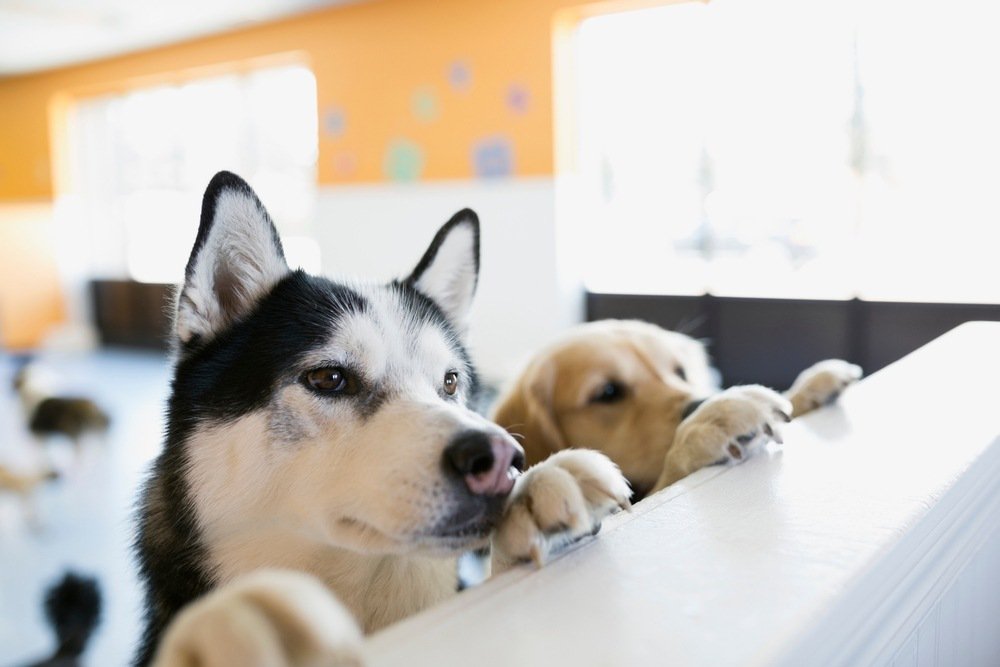
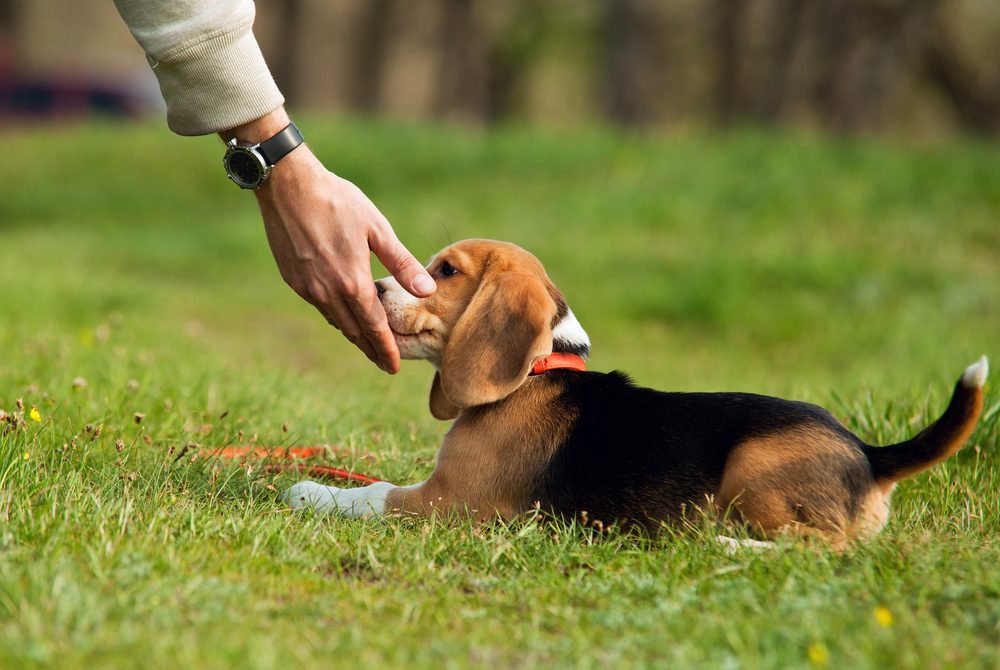
Puppy-proofing goes for the yard as well.
- Make sure the plants in your garden are dog-safe.
- Many common plants like tulips, lilies, and wisteria are toxic if ingested by our furry friends.
- Is your yard secure? If it is fenced, look for spaces a puppy could sneak through and find a way to block them.
- Block access to balconies or high steps to prevent falls. Always supervise your puppy outdoors.
Find a Vet
Just like doctors, finding a vet you trust is important. Some vet offices allow for ‘happy social visits’ where you bring your dog in just to say hello to the vet and get treats. This can help your puppy associate the vet’s office with good things, so when they need to go in for an appointment, they won’t be stressed.
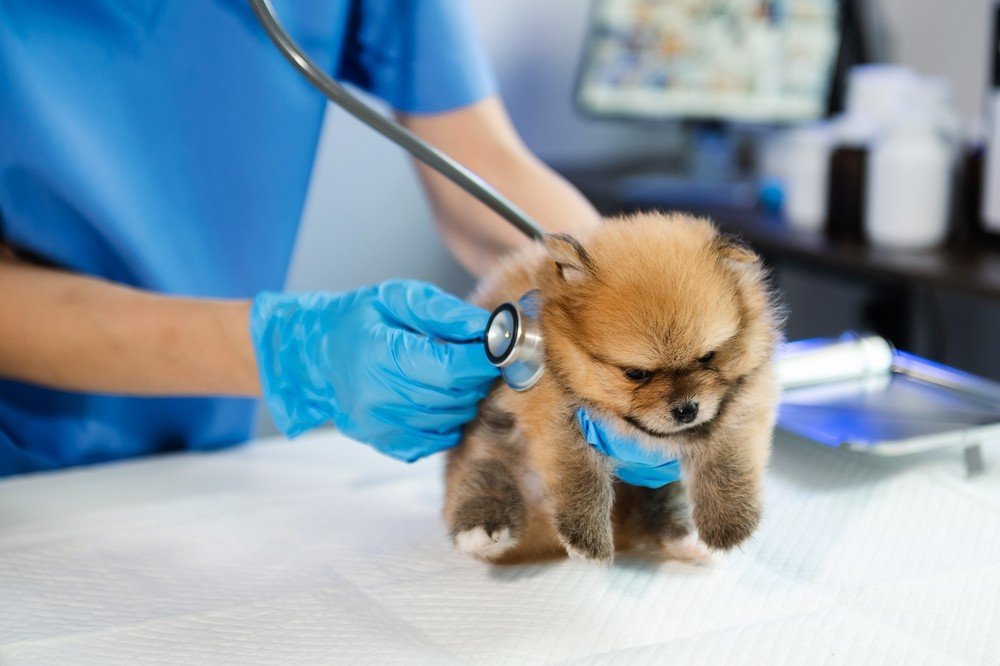
Training
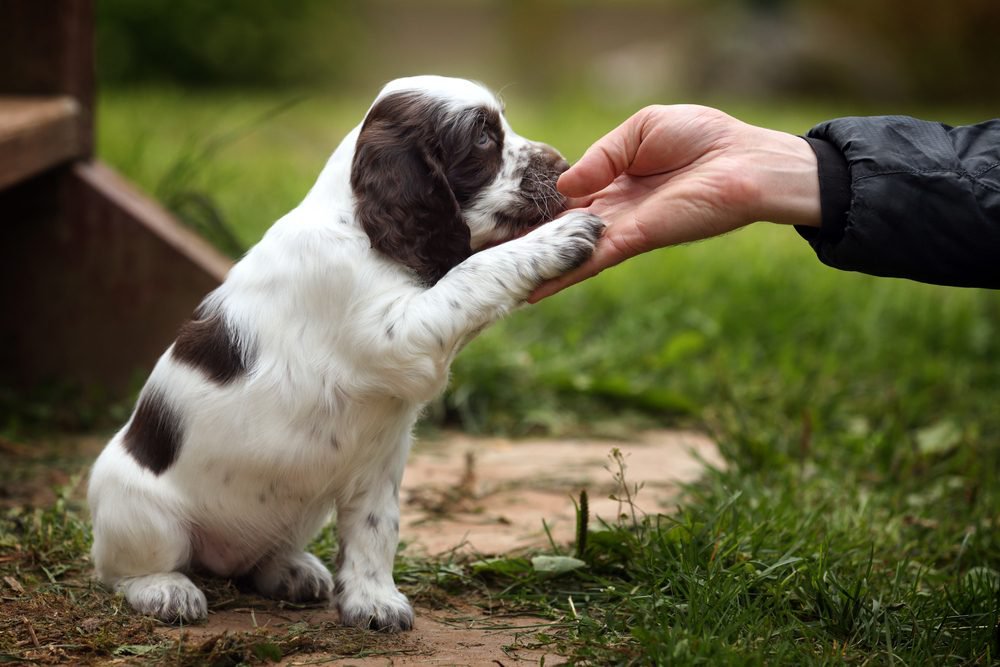
Being consistent with commands and using positive reinforcement will help your puppy learn the basics. Remember – short, quick lessons and lots of patience are key when it comes to training your new pup. Here’s a helpful training tip: always end a training session on a high note.
Our puppies also come with MyPetTrainer, a 15-week age-based positive reinforcement training program.
Buy the Necessities
Make sure you have the necessities ready to go before the big day. Dog bowls, collars, leashes, toys, and a crate are all beneficial to have ahead of time. Don’t forget high-quality dog food, too!
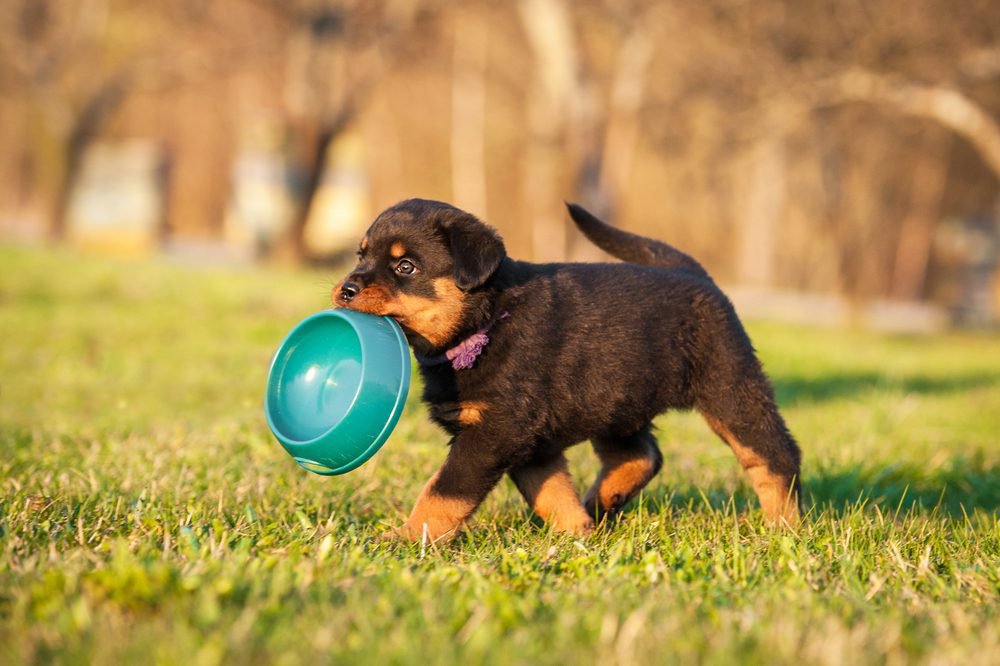
If you have questions about introducing your new puppy to your home or how you can prepare for their arrival, let us know! The friendly experts at The Family Puppy are committed to our pups and our customers.
